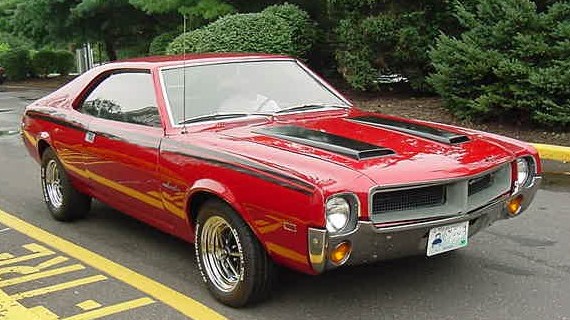
On this day in 1967, AMC issued a press release, pictured above, officially announcing the 1968 AMC Javelin. The vehicle would help AMC shed its commuter car appearance and as it jumped into the pony car market dominated by the Ford Mustang and Chevrolet Camaro. When the Dick Teague designed Javelin hit showrooms about a month later, on September 26, the base model retailed for $2,743, about $21,500 today. If you opted for the base hardtop Mustang you would pay $2,567 or you get a Camaro for $2,450.

For 1968 and 1969 a Javelin buyer had five engine options, ranging from the standard 232 inline 6 up to the 390 V8 that produced 315 horsepower. The latter became available midway through the 1968 model year. When the car was first released the biggest engine available was the 280 horsepower 343 Typhoon V8.
The car received excellent marks from automotive journalists. Motor Trend placed it at the top of the “sports-personal” category in its annual “Car of the Year” issue. It called the Javelin “the most significant achievement for an all-new car.”

The average age of a Javelin buyer was 29, which was 10 years younger than the average AMC buyer previously. Though ads compared the Mustang and Javelin side by side, and one even featured a Mustang getting beat up with sledgehammers, sales were not comparable. For 1968, 55,125 Javelins left dealers, while nearly 320,000 Mustangs sold. AMC, of course, did not compete at the same volume as the Ford Motor Company.
Production of the AMC Javelin would last through 1974. Only 27,696 were built, including 4,980 Javelin-AMX models, in its final year. Several factors contributed to the Javelin’s end. A rough economic climate was a primary factory, but the oil crises and stricter emissions and safety regulations sealed its fate. It was estimated that it’d take $12 million in engineering costs to bring the car up to date with new bumper rules alone. Additionally, AMC needed the room to manufacture its new small car, the Pacer, which was to be introduced for 1975.






















